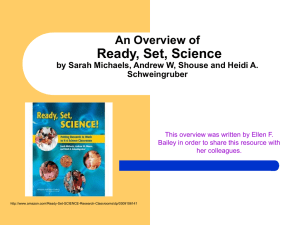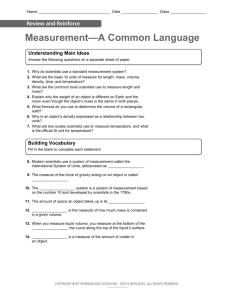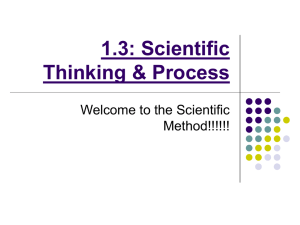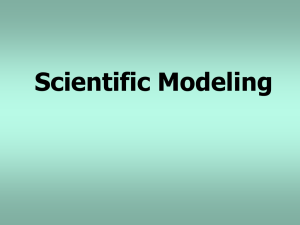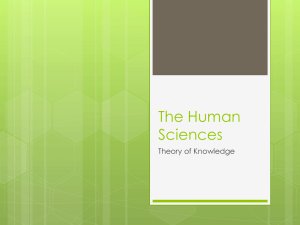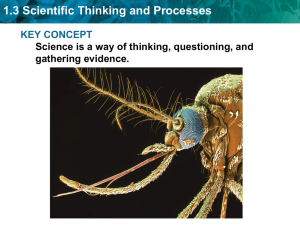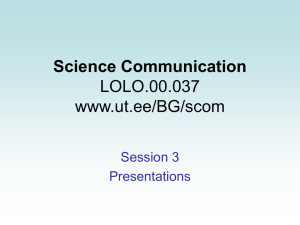GAMEcards, modified by Fox (2010)
advertisement
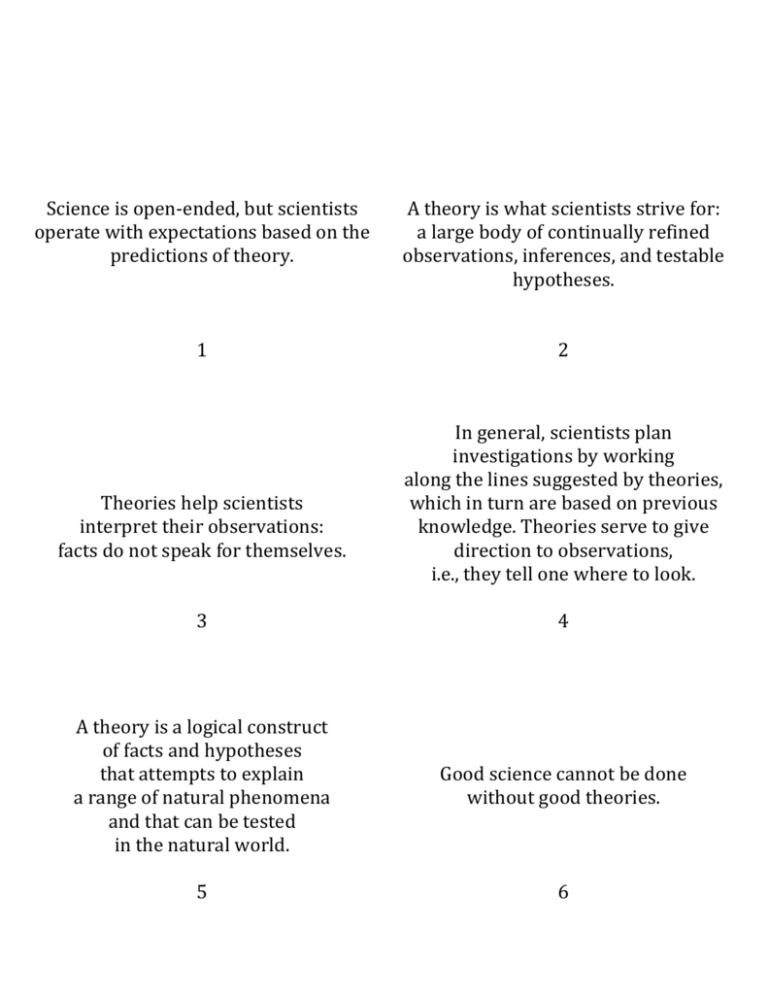
Science is open-ended, but scientists operate with expectations based on the predictions of theory. A theory is what scientists strive for: a large body of continually refined observations, inferences, and testable hypotheses. 1 2 Theories help scientists interpret their observations: facts do not speak for themselves. In general, scientists plan investigations by working along the lines suggested by theories, which in turn are based on previous knowledge. Theories serve to give direction to observations, i.e., they tell one where to look. 3 4 A theory is a logical construct of facts and hypotheses that attempts to explain a range of natural phenomena and that can be tested in the natural world. Good science cannot be done without good theories. 5 6 Observation is central to all of science, i.e., seeing is believing. A scientist should not allow preconceived theoretical ideas to influence observation and experimentation. 7 8 Unless an idea is testable it is of little or no use; thus, scientists attempt to convert possible explanations into testable predictions. Careful, repeatable observation and experiment give the facts about the world around us. 9 10 Good science always begins with observations. Science is never authoritative; it is always subject to adjustment in the light of new observations. 11 12 A phrase such as "Many scientists believe..." misrepresents scientific inquiry because scientists deal in evidence. Science is always changing and therefore is not very reliable. 13 14 Scientists should be held Responsible for harm their discoveries have caused, e.g., pollution, nuclear weapons. Earning recognition from other scientists is really the main motivation of most scientists. 15 16 Most of what scientists do will never be of much practical value. Money spent on projects such as NASA space flights would be better spent elsewhere. 17 18 Science destroys values and morality by disparaging the unique nature of men and women. Science and religion are fundamentally at odds. 19 20 The scientific method should be followed in all fields of study. Scientists and engineers should make the decisions about things like types of energy to use because they know the facts best. 21 22 Science is the most important way of gaining knowledge open to humanity. 23 Science knowledge is of much greater value than any other type of knowledge. 24 Only science can tell us what is really true about the world. Science knowledge is always objective and self-correcting. 25 26 Credit for our advanced way of life must go to science and scientific progress. Funding decisions influence the direction of scientific inquiry 27 28 Scientific questions, methods, and results vary according to historical, political, cultural and social settings The predominance of men in the sciences has led to bias in the choice and definition of the problems scientists have addressed 29 30 Scientific facts are manufactured through social negotiations between scientists. Nature has nothing to say on its own behalf. Scientists tend to see things alike, so even groups of scientists may have trouble being entirely objective. 31 32 The Early Egyptians, Greeks, Chinese, Hindu and Arabic cultures are responsible for many scientific and mathematical ideas and technological inventions. The predominance of men in the sciences has led to bias which is a factor in the under representation of women in science 33 34 Science is one of several powerful ways of knowing and understanding the natural world, however, some matters cannot be examined usefully in a scientific way. Science leads to generalizations based on observations or theories. Science always aims to be testable, objective and consistent. 35 36 As with all human endeavors science is subject to many influences both good and bad. Science builds on what has gone on before and refines its conclusions, but scientific work does not result in infallible propositions, such as the word “proof” implies to a nonscientist. 37 38 Scientific progress has made possible some of the best things in life and some of the worst. Theory and observation interact. Each contributes to the other: If theory without observation is empty, then observation without theory is blind. 39 40 What is Science all about? CARD GAME RULES: A) Each pair must hold 8 cards where both relatively agree with statements B) Each member must contribute at least 3 cards C) Discard remaining cards STEP 4 Find a foursome Same RULES as above, ASK groups to rank order their statements STEP 5 BASED ON YOUR CARDS, WRITE a statement of paragraph length on the nature of science (as a group) WRAP-UP, share paragraphs Discuss why reject/accept some cards Require 5 sets of 40 cards = 200 total for use with groups of 20-32 students STEP 1 Shuffle cards, deal 6 per student STEP2 (10 min) A) Students mingle B) show cards/discuss C) Trade duplicates, trade for cards you agree with, trade away cards you disagree with STEP 3 Find a pair (see RULES)
